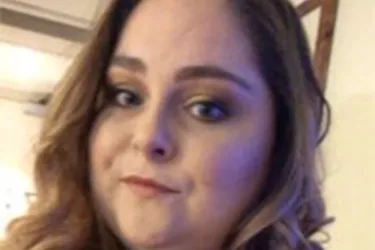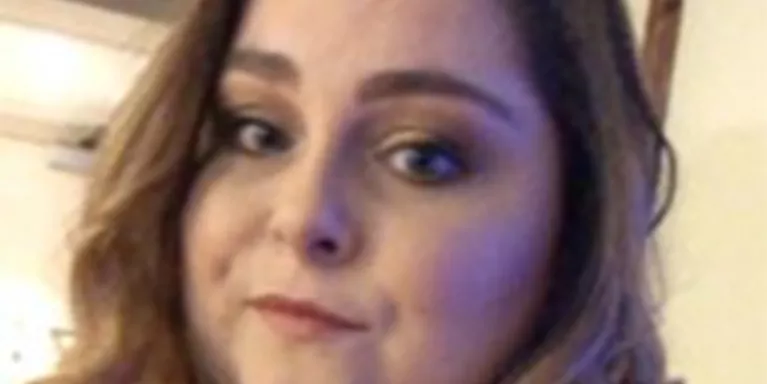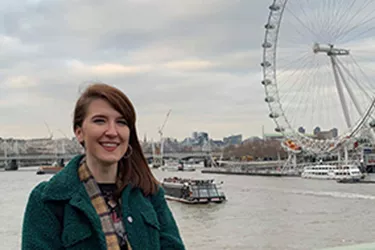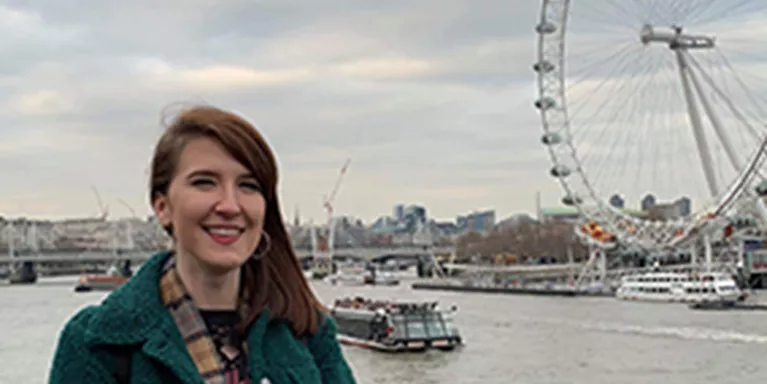Covid made my anxiety spiral in 2020
Lauren blogs about the impact of the pandemic on her mental health.
When the first cases of coronavirus were reported in the UK, I tried to keep a positive mindset. I never could have predicted that almost a year later we’d still be talking about it, never mind living with social restrictions. The pandemic and lockdown has affected everyone in different ways, and it’s had a negative effect on a lot of people’s mental health, including mine. I’ve already been diagnosed with two anxiety disorders, so the thought of catching, spreading and potentially dying from this mysterious virus was incredibly hard for me to come to terms with. I’d constantly worry about leaving the house and seeing relatives, as well trying to focus on my degree and assessments, which were happening right in the middle of lockdown.
When lockdown was announced, I was halfway through the final year of my degree and living away from home. My anxiety about moving home and the uncertainty of my studies made me feel incredibly ill. I couldn’t sleep, I lost my appetite and I was constantly on alert for any changes the pandemic was sure to bring. Once I was back home, I didn’t have time to focus on myself and my mental health. I was receiving countless emails a day from my lecturers informing me of changes to my assessments. It was all very disorganised and confusing, and just served to increase my anxiety. As well as panicking about the virus and contracting it, I also worried about my studies, and whether all those years of hard work would amount to nothing. We were also told that our graduation would be postponed, which added sadness to my already deteriorating mental health.
Even when I needed a break from my assignments, there was nowhere I could escape that brought me joy. I could no longer see my beloved grandparents, so I settled for phone and video calls. I tried going for walks and practising yoga, but, I was still incredibly anxious and depressed. It got harder to find the joy in my studies. I was expecting to make a magazine with my friends and interview people involved in musical theatre, but instead I sat in my kitchen writing completely different assignments, distracted by the reality of the virus.
The virus made it difficult for me to know how to act around others, petrified that I’d catch something. All of these issues snowballed into one giant problem, and I felt hopeless.
The lack of interaction with people set me back in my quest to get a handle on my social anxiety. I was unable to talk face to face to my family and friends, never mind strangers. Once lockdown was lifted and I was able to leave again, I found it harder to be in social situations and around strangers, which made me feel like I was back to square one. The virus made it difficult for me to know how to act around others, petrified that I’d catch something. All of these issues snowballed into one giant problem, and I felt hopeless.
Just before the virus arrived, I was put on the waiting list for cognitive behavioural therapy. I’d had CBT before, but years had passed since then, and I needed a refresher. My social anxiety was starting to get the better of me again, and I wanted to conquer it once and for all. Plus, my general anxiety surrounding graduation, job hunting and interview was niggling away, so I thought it best to help myself before it was too late. This was in December. I had no idea how much I’d be craving professional help come May.
I’m learning new techniques and skills which are helping me overcome my social anxiety, as well as training my brain to accept my anxiety, and not let it control me.
To occupy myself, I blogged about mental health, and started an Instagram page for the blog. I also continued practising yoga, and found that it was now a great stress reliever, and took my mind off of the pandemic. Writing gave me a place to unload what I was feeling instead of bottling it up. I also tried to open up to friends and family about how I was feeling, despite it being incredibly difficult for me to do. Turning to people I trusted the most made completing my degree that much easier. Finally, in August, I began therapy again. It’s been wonderful to talk directly and unashamedly about my anxiety, how much of a hit my mental health has taken over these past difficult few months. I’m learning new techniques and skills which are helping me overcome my social anxiety, as well as training my brain to accept my anxiety, and not let it control me.
It’s important that we be mindful of everyone around us during these difficult times, and make life as easy as possible for each other.
It’s become clear the people who may have never previously experienced depression or anxiety are now doing so because of the pandemic. Whether it be the virus itself, or its adverse effects such as the unemployment it’s causing, thousands of people are needing more help to cope with their mental health. Also, those with existing mental health conditions such as myself may be finding it a lot harder to carry on. It’s important that we be mindful of everyone around us during these difficult times, and make life as easy as possible for each other. The pandemic has taken priority over everything in our lives right now, but there has never been as important a time to look after our mental health too.


Information and support
When you’re living with a mental health problem, or supporting someone who is, having access to the right information - about a condition, treatment options, or practical issues - is vital. Visit our information pages to find out more.
Share your story with others
Blogs and stories can show that people with mental health problems are cared about, understood and listened to. We can use it to challenge the status quo and change attitudes.

















